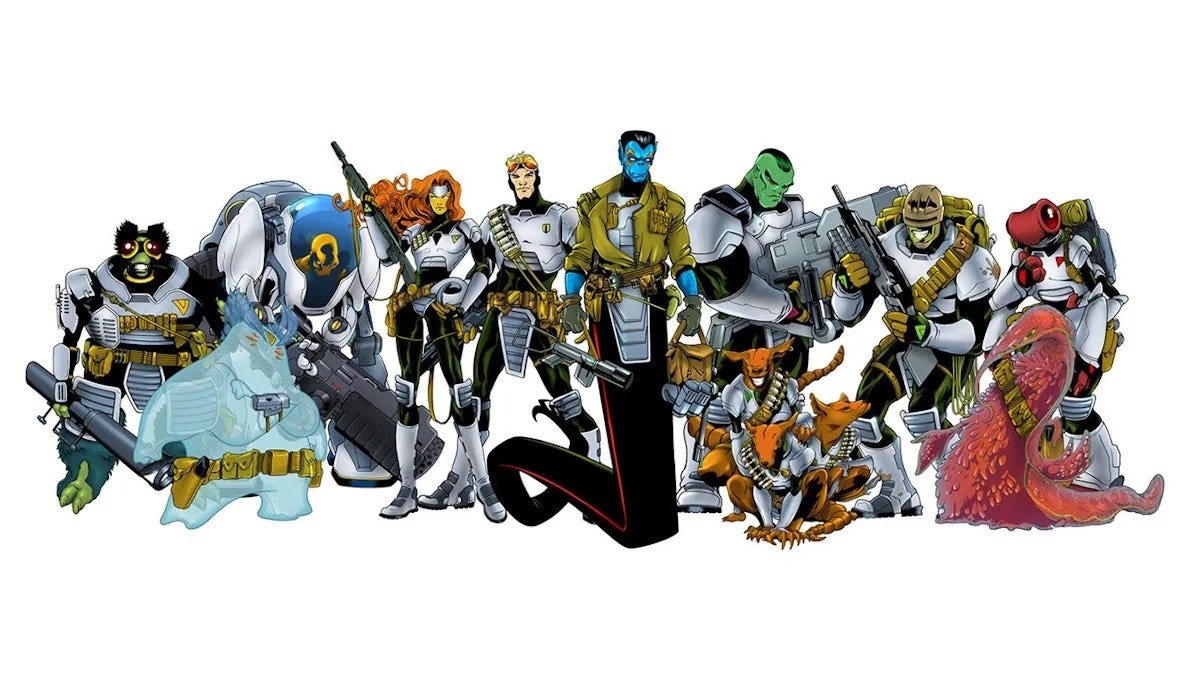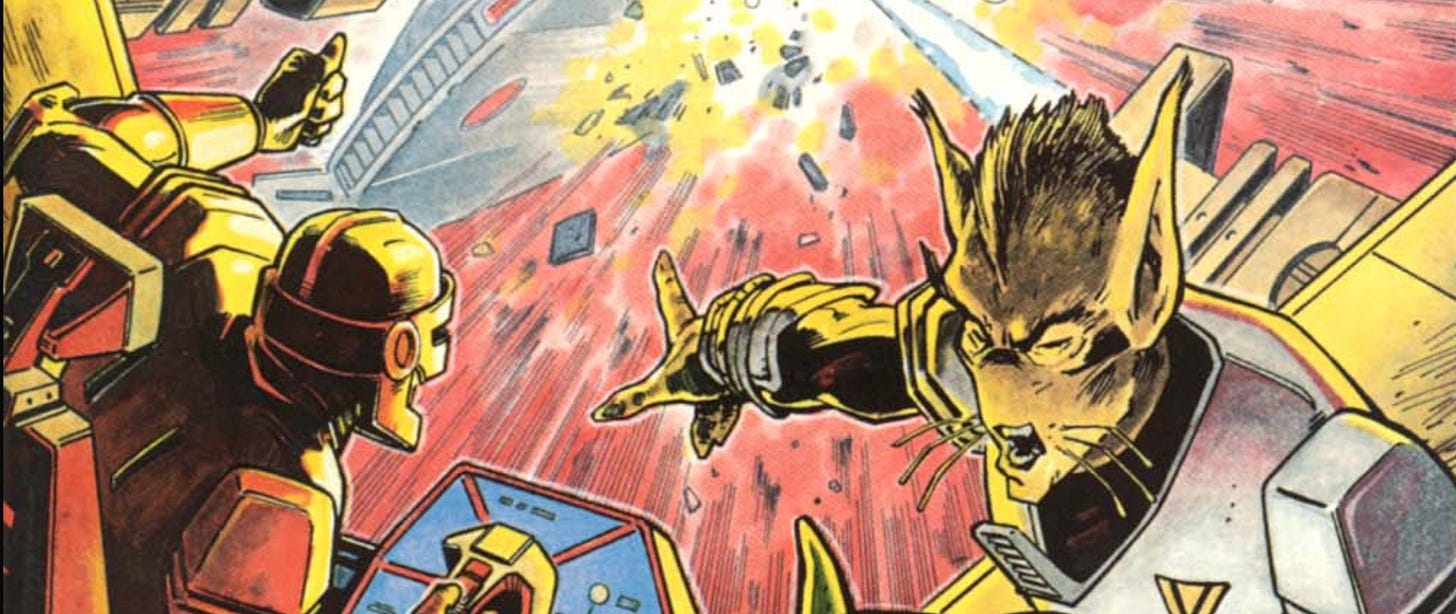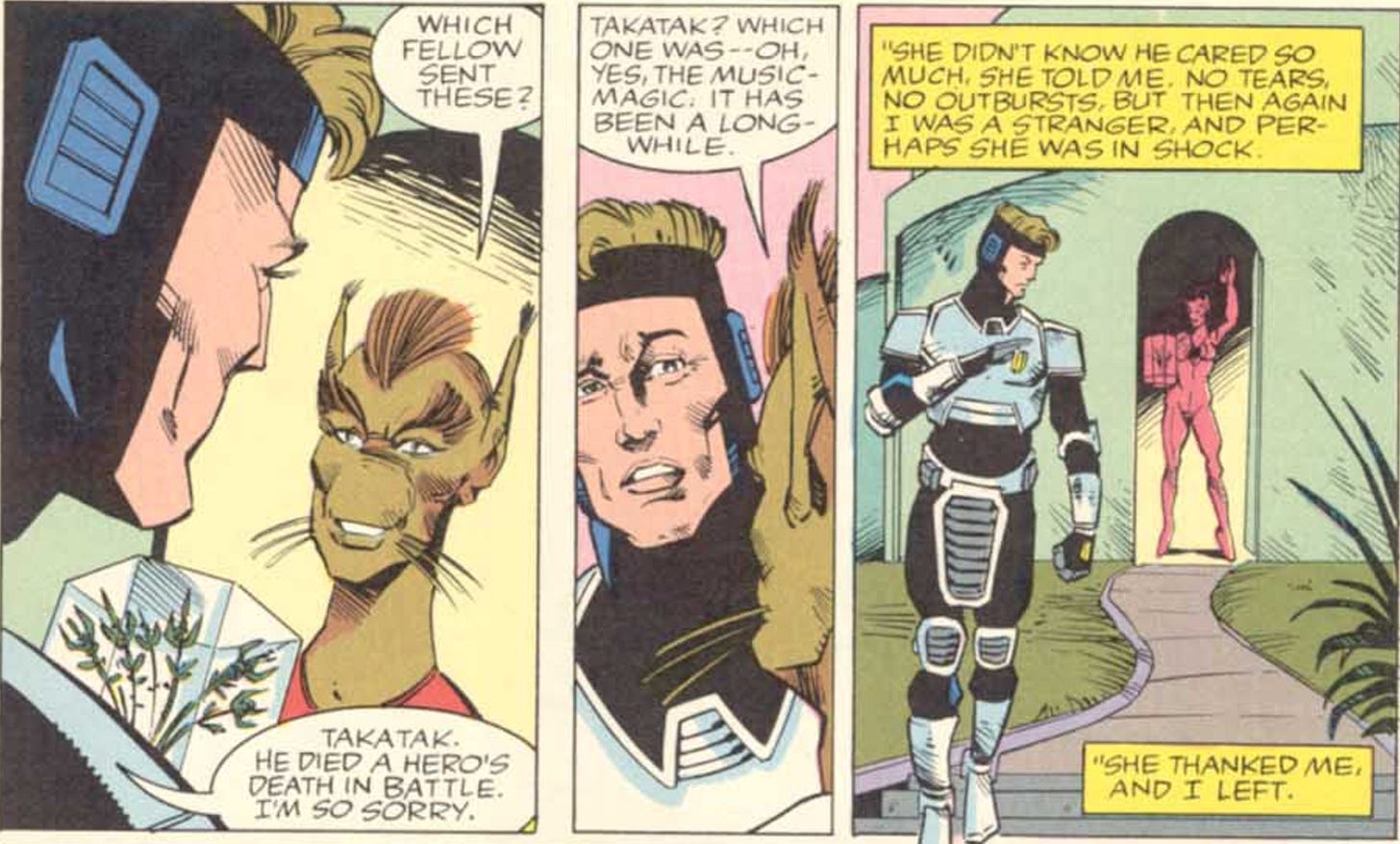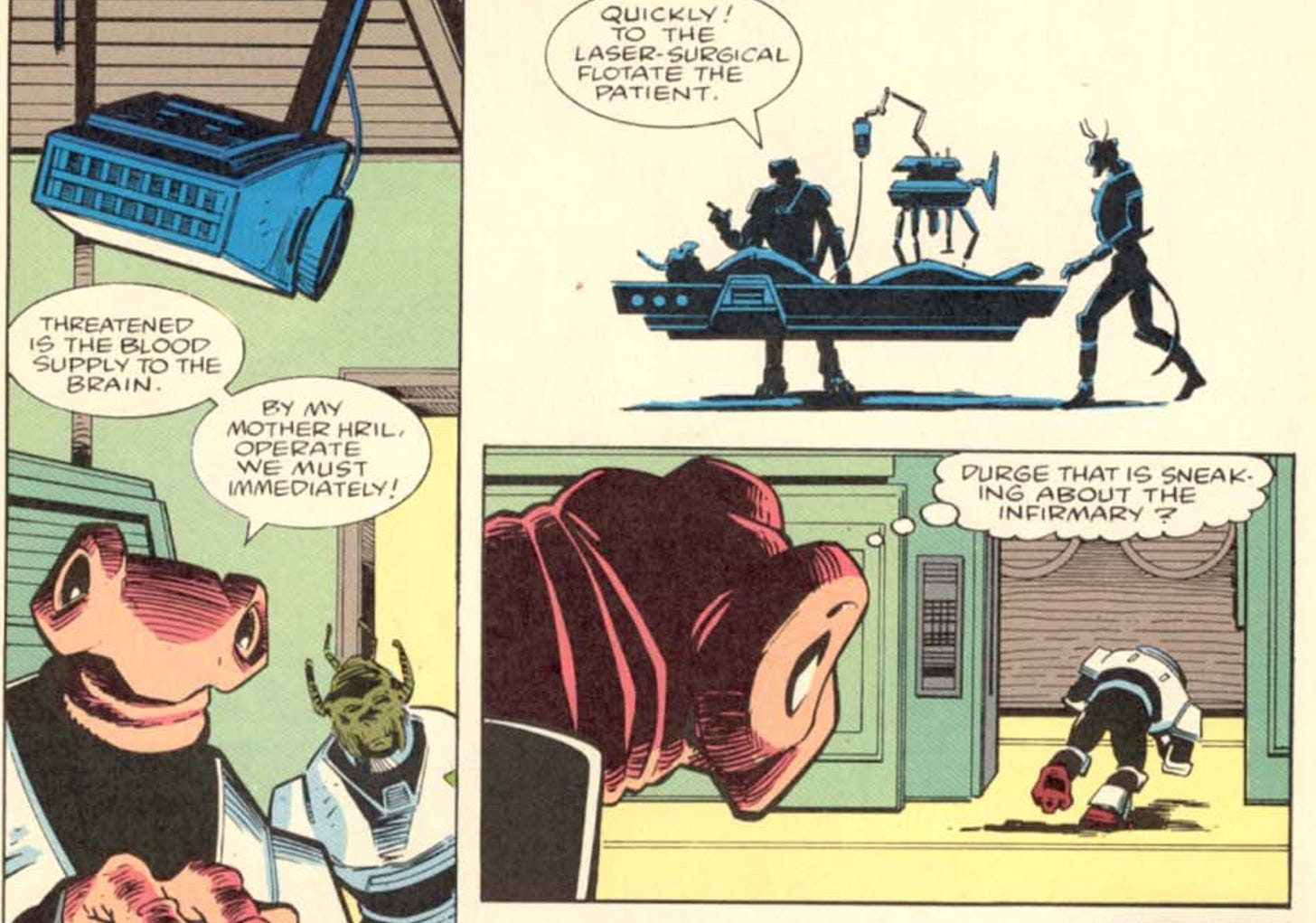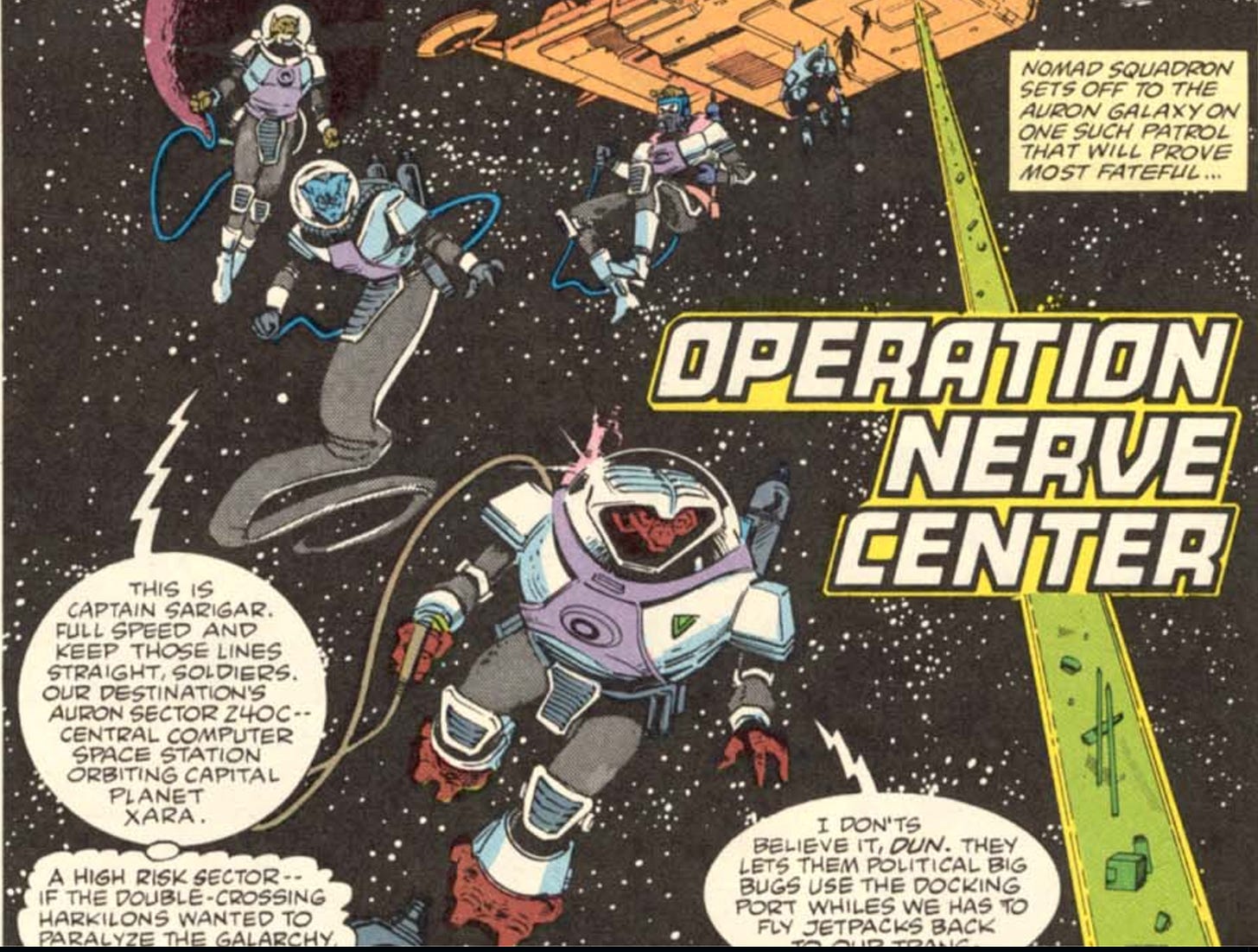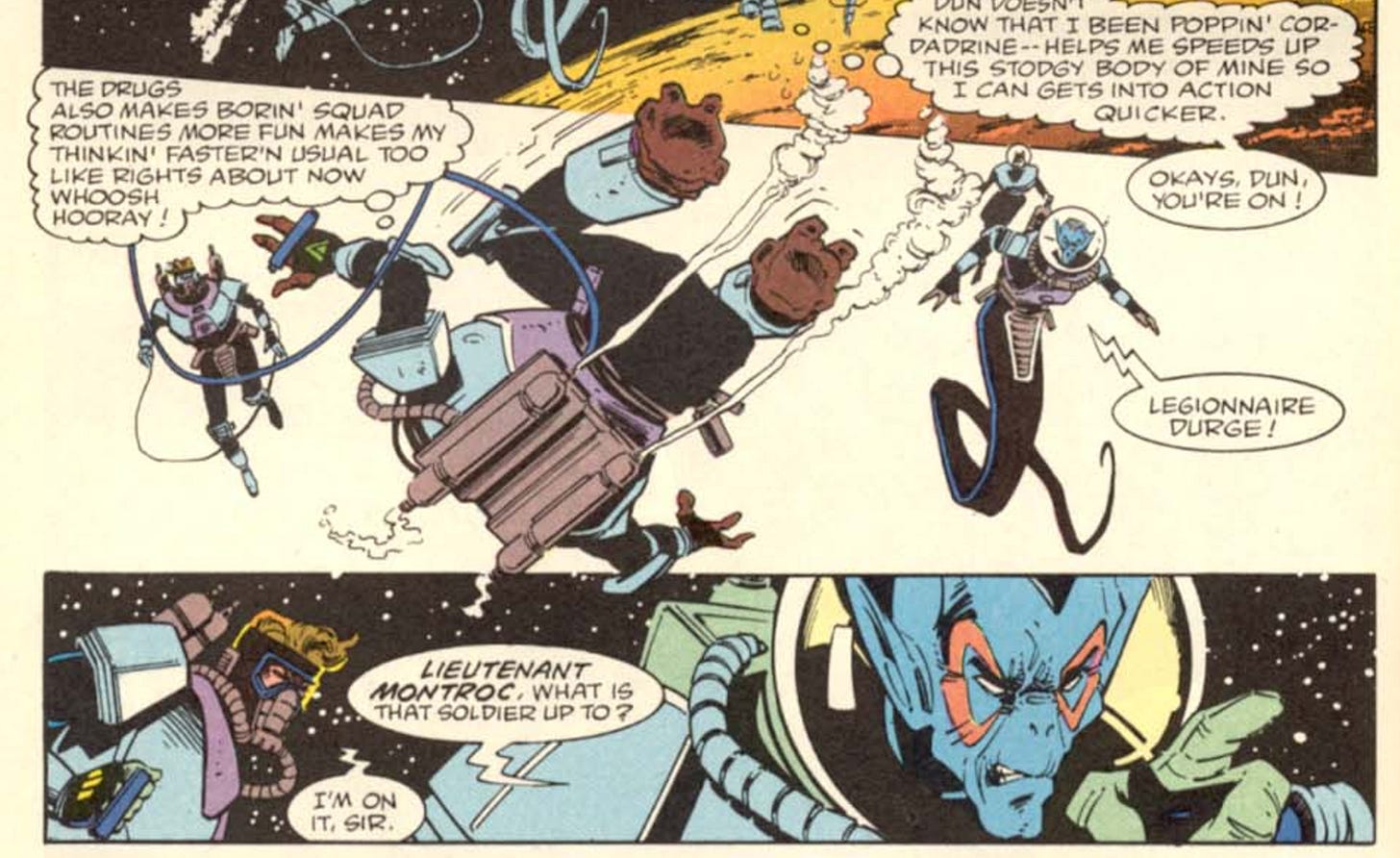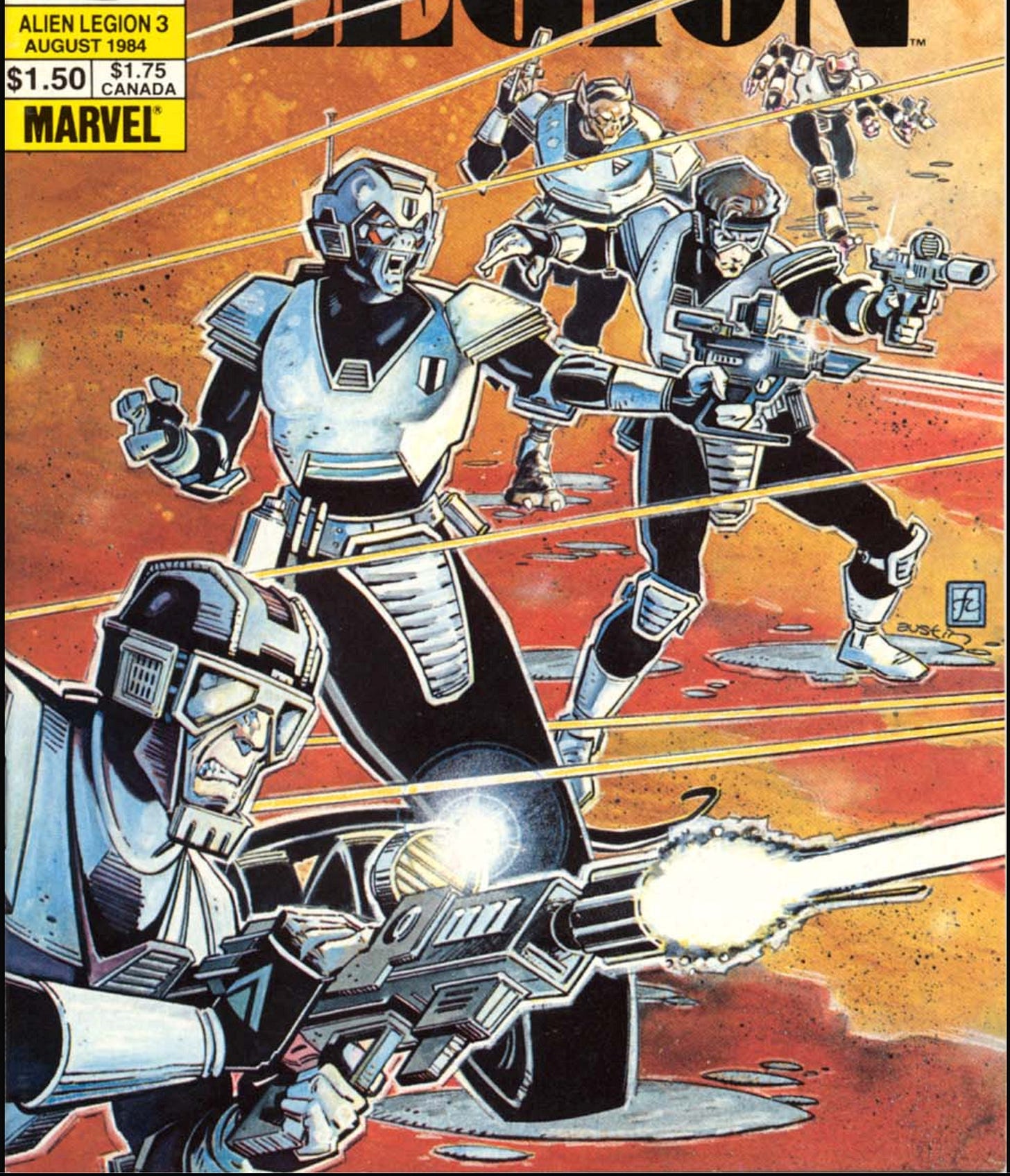Mining Gems aka Alternative Comics
Comics Book Movies, at least the superhero ones, have reached saturation maturity in the Hollywood exploitation machine. And there's tons of other newsprint gems that are routinely overlooked.
Hello from Hancock Park! Welcome back!
Before Twitter fully morphed into the Apartheid-era South African’s propaganda bull horn, I remember a writer colleague poo-poo’d comic book movies and the havoc they’re inflicted on the Hollywood landscape.
I had to correct her by pointing out several fairly amazing films were based on comic books, but weren’t about men in capes. ROAD TO PERDITION (2005), A HISTORY OF VIOLENCE (2005) revealing to someone that comic books that come to mind.
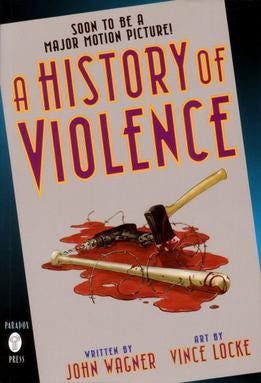
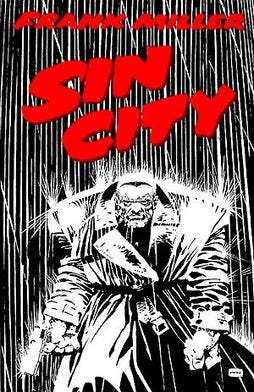
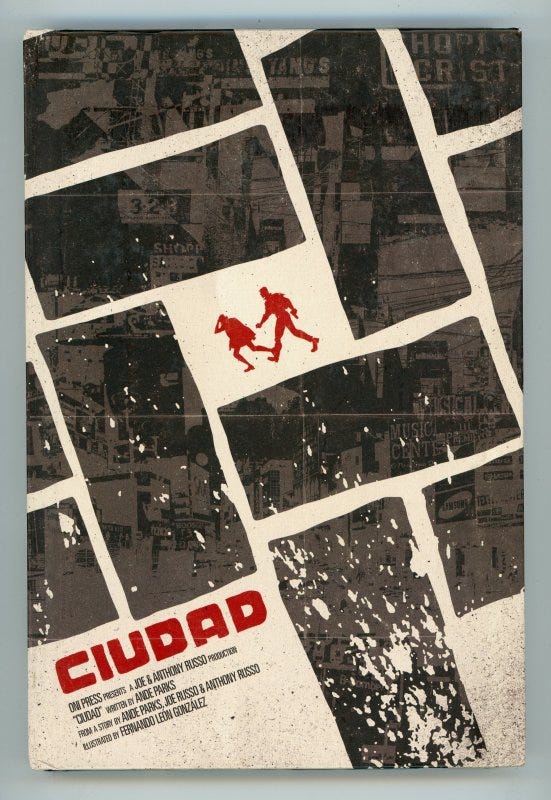
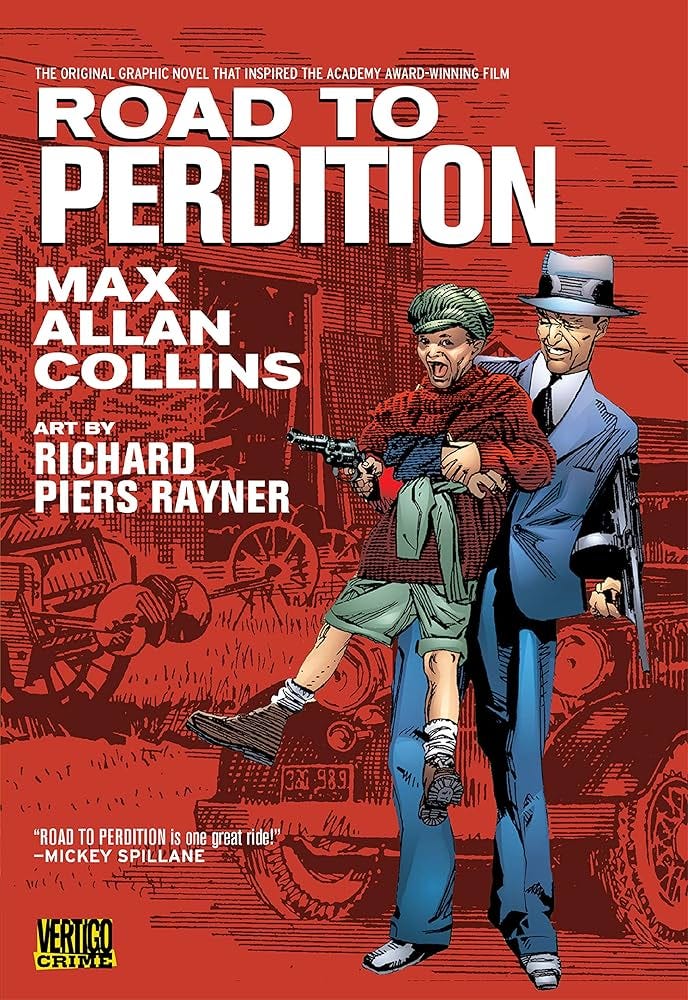
The medium is far more than superheroes, although they receive a disproportionate amount of the spotlight (and ire).
My buddy Cole Haddon of 5AM STORY TALK (which if you aren’t reading, you’re slippin’) asked me about a work of art that had a potent impact on my as an artist. I gave him a brief entree to my pick (as showcased on his latest article), a science fiction comic book — Epic Comics’s ALIEN LEGION.
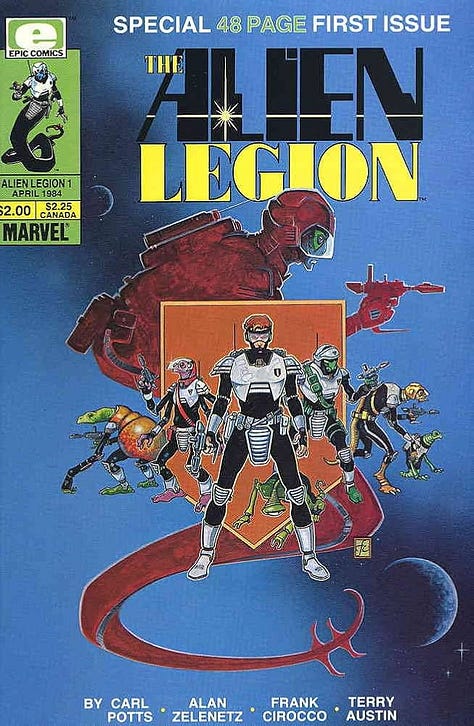
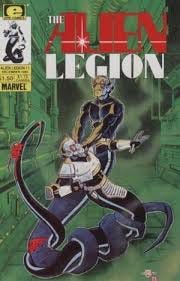
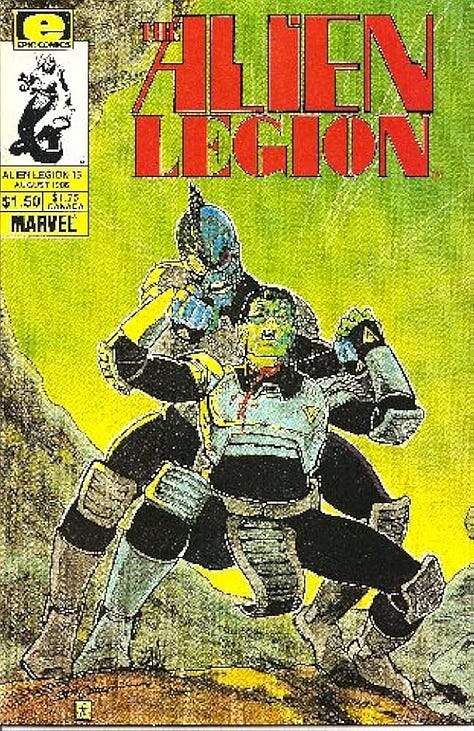
Epic Comics was a creator-owned imprint at comics Marvel Comics. The imprint allowed Marvel to publish more objectionable content (sometimes explicit) without needing to comply with the stringent Comics Code Authority. And ALIEN LEGION was first published in 1984.
Epic, from what I can tell, ran afoul with the top brass at Marvel when the comics publisher merged with a money-hungry toy and collectable cards company in the early/mid 90s. Sadly, the new owners main aim was no longer to produce great comics but to harvest profits from their well-known IP. And Epic was a bone-headed casualty of that quarterly-profit dominated corporate strategy. And we’re all the poorer for it.
It boggles the mind that Marvel was able to make Epic work during the 90s indie comics wave, because Image and DC Comic’s Vertigo line (both of which offered creators ownership) ate Epic’s lunch, despite it proving the creator-rights model works eight years earlier.
ALEION LEGION is a space opera/adventure series, it’s the French Foreign Legion in space.
In my 20s, I used to devour Hollywood movies from 1940s and 1950s, and I came to realize is, you can tell any great, emotionally valid, human story within the context of a war film.
Gender-bending Rom-Com? I WAS A MALE WAR BRIDE… check. A jail comedy with a cynical touch? STALAG 17… check. Marital discord combined with crushing an individual’s spirit without a battle scene? FROM HERE TO ETERNITY… check. Absurdist social commentary? CATCH-22… check. What about tackling racial prejudice? THE HOOK or SERGEANT RUTLEDGE… check, check. A romantic musical? SOUTH PACIFIC… check.
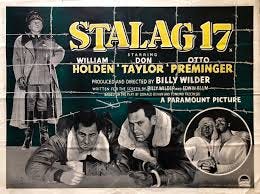
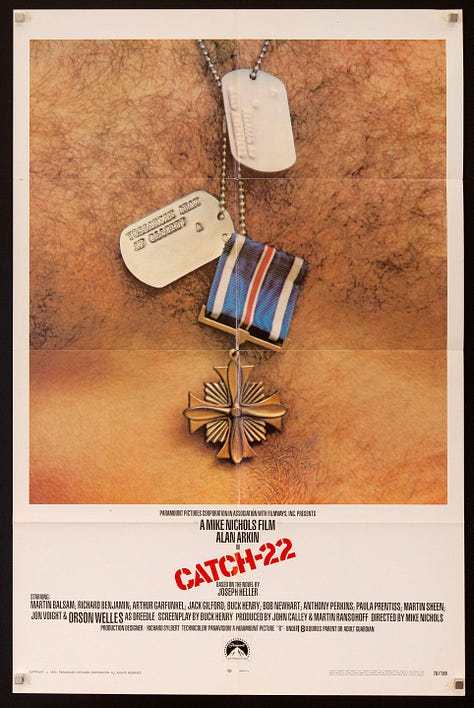
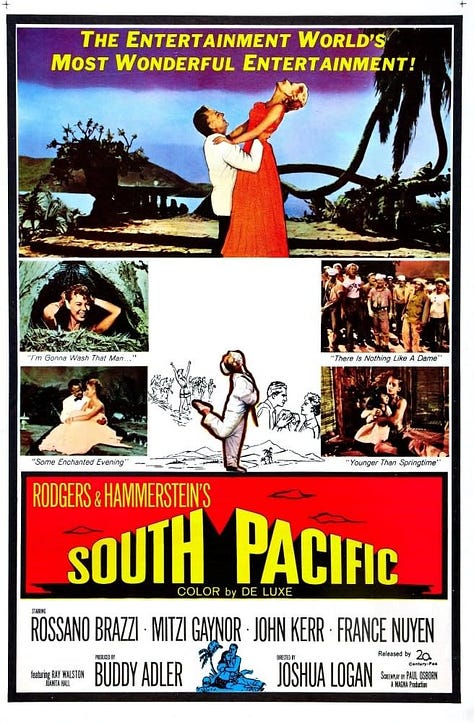
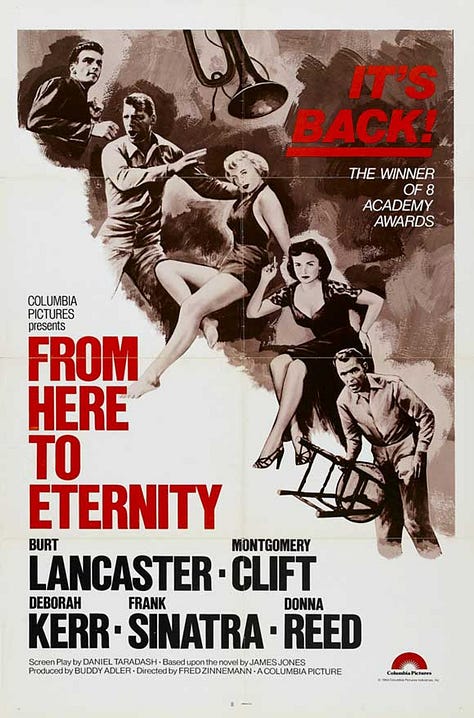
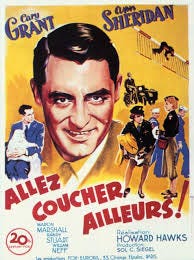
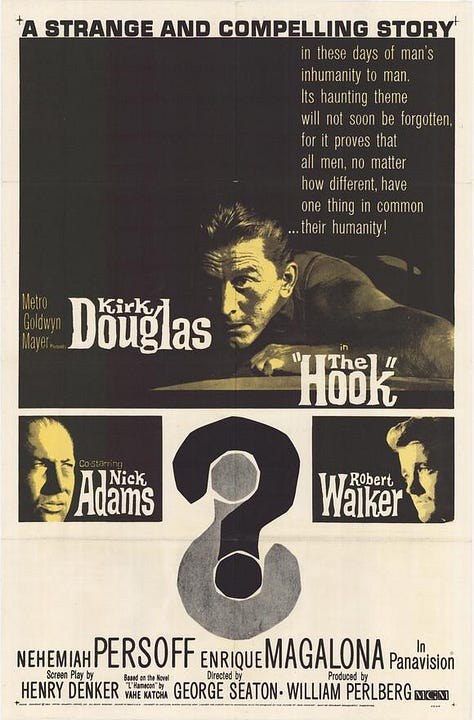
Yet any given film, at two hours, is too focused on a singular character to deeply explore a wider variety of personalities, situations, politics, and broad & narrow themes in a continuing way.
TV is too concerned with ratings, budgetary constraints, hitting commercial breaks, or being “binge-worthy” to ruminate on subjects like an elite’s feelings of inadequate among the less privileged. A novel (or novel series) has the capacity to do these things — and more — but lacks the potent visual dynamics, graphic immediacy, and unique storytelling capabilities of a comic book.
This is where ALIEN LEGION comes in.
Originally created by Carl Potts, with scripts by Alan Zelenetz and art by Frank Cirocco, the series tackles every human emotion, the themes explored run the gamut, and the shattering stories are about love, loss, bigotry, and the price of sacrifice (to name a few). The lens for all this rich exploration is Nomad Squadron, a run-of-the-mill group of legionnaires from the connected worlds in the Galarchy.
During my re-read of the first 18 issues, I was flabbergasted at how much of an influence this comic had on my writing, my storytelling, my visual aesthetics, and my point of view on life.
What was crucial about the re-read was examining the most-adult characters and mature storylines — this was before the “for mature readers only” warning label was smacked on comics — as an adult (instead of as a pre-teen). The thing about reading a work that so dramatically impacts you as a young person is, you don’t have enough life experience to truly appreciate the nuances any given creator has infused into the work. You just love it because it speaks to your soul.
Also, ALIEN LEGION utilizes the now-little-used comic book back-up story feature to flesh out characters. In my re-read, I couldn’t help but wonder if the creators of LOST were also influenced by ALIEN LEGION, because the back-up stories act like the flashbacks in LOST; telling us who the castaways were before they ended up stranded on the Island. In ALIEN LEGION, the back-up stories give us a peak at various legionnaires before they joined up.
What Carl Potts and company turn a hot spotlight on are topics and themes that permeate much of my work, including politics (in the government), politics in a group dynamic, bullying, racial intolerance (divorced from human ethnic groups and the tripwires associated with them), the underpinnings of drug abuse, the false stories we tell ourselves to survive, what it means to be a leader, the pitfalls of pride/ego, and how familial bonds can break you, and how bureaucracies/institutions grind you down (this happens to be the overarching them in HBO’s THE WIRE).
Let’s take a look at a few examples. One of the core characters in Nomad Squadron is Lt. Torie Montroc, a rich kid who joined the legion to prove to his father that he wasn’t a pampered, entitled brat. Over and over again in the first year of stories, Montroc risks his life with a small carve-out group of legionnaires (the main characters).
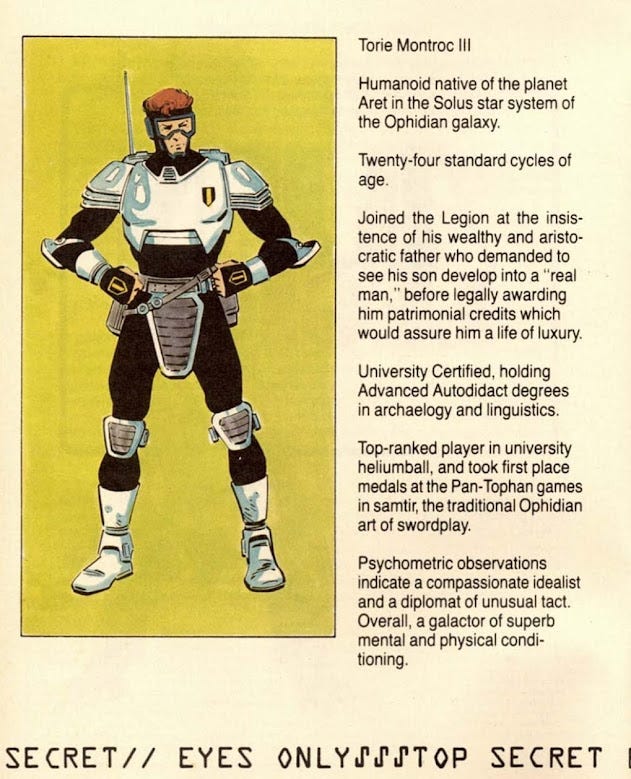
One of those guys under Montroc’s command, Takatak is a favorite amongst his fellow legionnaires.
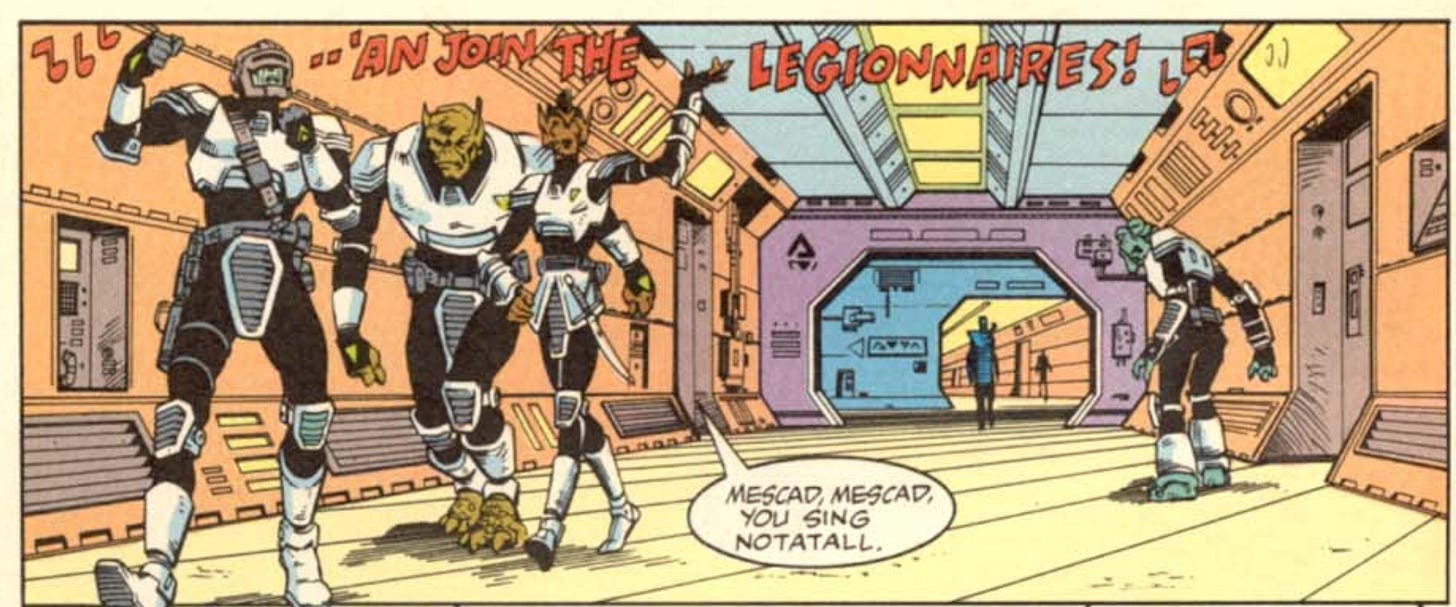
Over the course of the issue, we see Takatak show why he’s loved — his bravado and sense of duty. So when Nomad’s ship gets attacked by Galarchy’s intergalactic rivals, of course, Takatak is going to risk his life to save the most racially-hated member of Nomad squadron from getting shot in the back during the skirmish. For his troubles, Takatak takes the laser blast instead.
As Takata is bleedig out, he begs Montroc to bring “Moonlillies to Coracora”. Coracora is the love of Takatak’s life. Montroc agrees.
Two issues later, Montroc goes through Takatak’s locker, digging through his personal effects to find out Coracora’s location. After a mission, Montroc tracks down this woman on a far-flung planet to deliver the letter and the keepsake. And the woman, at first, doesn’t recall the legionnaire who whispered her name during his last breath.
Then it clicks, she does remember Takatak, by his music magic tricks. But then we get two sharp twists.
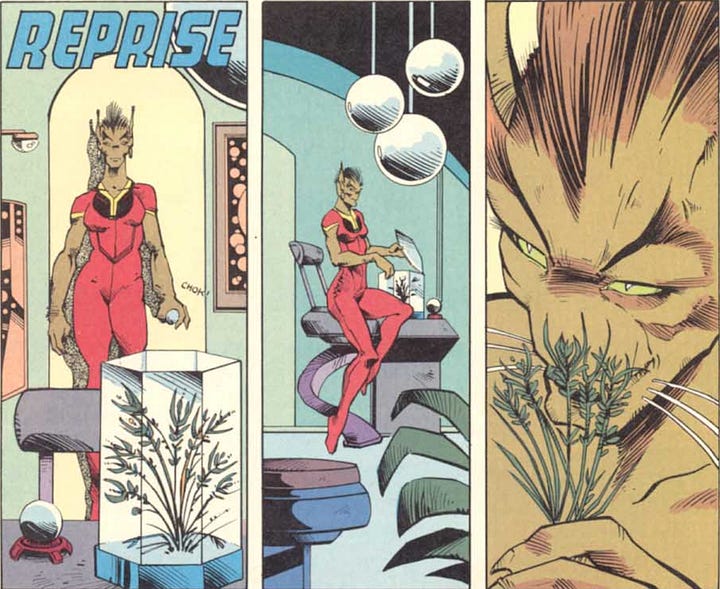
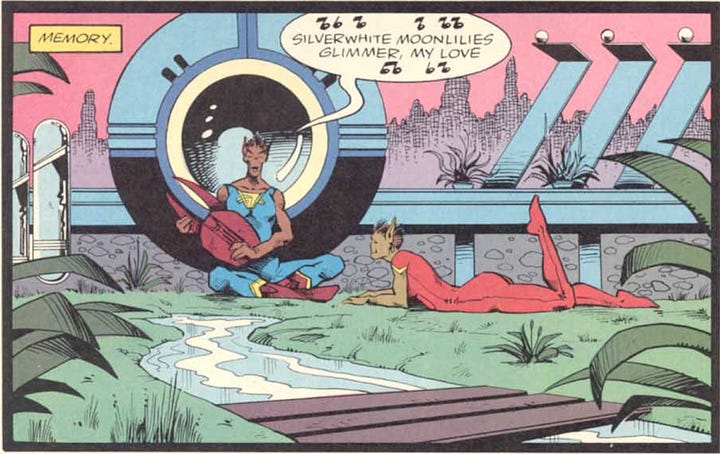
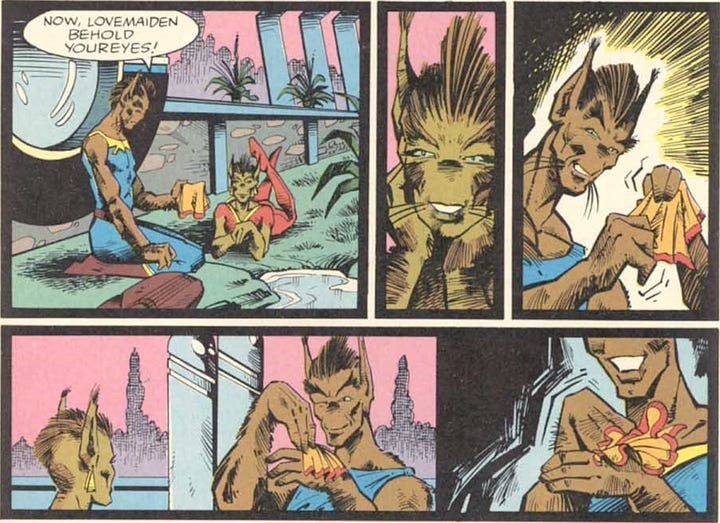
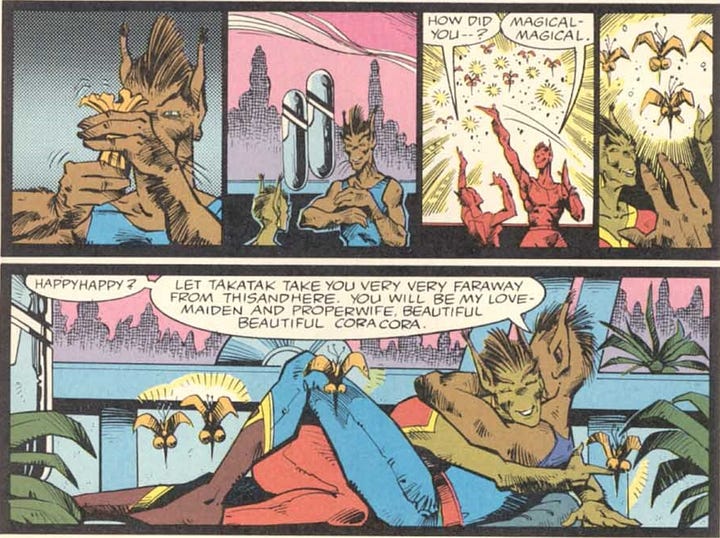
Coracora does remember Takatak, they had fun times together. But she is actually a call girl who provides “the girlfriend experience” (this was decades before the term was coined and popularized, too) and the dead legionnaire was just one of maybe several dozen (perhaps over a hundred) guys that she’s been with.
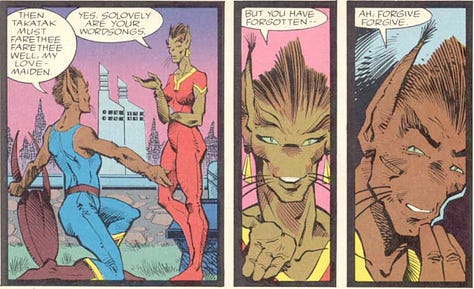
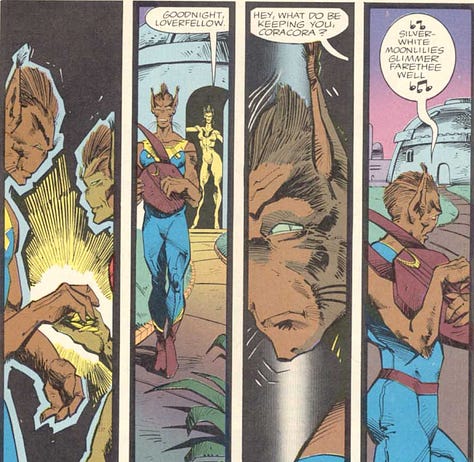
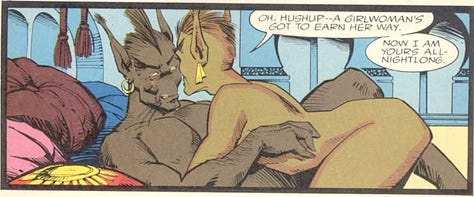
Montroc backs away, crushed for his dead friend and his self-inflicted disillusionment. It was poignant and devastating for Montroc and for me, as the reader. This stalwart legionnaire duped himself, and conjured alternative facts incongruent with reality because he was so fucking lonely and adrift. And he was, obviously, unable to recognize one of the cold, hard truths about romantic relationships: are you really in the same relationship as the other person?
I know people like this, people who created this level of self-delusion - men and women — and it’s devastating when the truth is revealed. I, myself, have misread sexual dalliances to some degree (nowhere near as extreme) where I wanted it to be more, yet it was just a FWB situation on her end.
As 10 or 11 year-old, I had no life experience to even inform me of this psychological behavior. No recognition of how we create our own “truths” (that phase, “your truth, my truth, and what really happened” comes to mind).
Yet emotional minefields of this sort can plague us and we’re usually in denial about them. A friend or family member has to break the rose-colored glasses for us to see - in the aftermath - how boneheaded we actually were.
I’ve created characters in my writing work who tell lies to themselves to feel better, to shape their internal narrative in order to carry on, to manipulate others (and themselves). Did I get it from ALIEN LEGION?
It would seem so!
After I put the issue down during the re-read, I kept thinking, “I get it. He was lonely, oh, so lonely, and he held on to that one fleeting moment of intimacy so tightly that he distorted it. In his own mind.” Fuck.
In another story that spans a few issues, Nomad Squadron’s resident “tank” Durge is unhappy with his role in the unit. He’s a squat, slow-moving but determined alien with a thick carapace, almost like a turtle.
Durge is a favorite among his peers, but he’s unsatisfied with himself. He aches to be one of the frontline guys who takes on the dangerous, rapid-attack aspects of missions. So he secretly takes performance enhancing drugs to amplify his speed and agility. It’s great for him, but the side effects are reduced cognition and a reduced sense of self-preservation.
A dangers of PEDs story in a comic in 1984? Come on! That’s breaking new ground! PEDs were finally coming to light in the NFL around this time.
So, in Nomad’s next high-stakes mission (a space walk to board a pirate’s space ship), Durge’s compromised behavior results in the death of a fellow legionnaire and he himself gets seriously injured. The squad’s medic discovers the PED use, but hides it from the rest of Durge’s mates — even the commander! What?!?
Keeping secrets - for good or for bad - is a main pillar in the creation of Western literature and drama (think ROMEO & JULIET, think HAMLET, think EMPIRE STRIKES BACK, think OEDIPUS, think A CHRISTMAS CAROL, think CITIZEN KANE). Again, an element of how to produce great work, that learned about (formally) maybe 15 or 20 years later, was presented in the pages of ALIEN LEGION.
In my late 20s, I read Robert Greene’s THE 48 LAWS OF POWER, and it shed a lot of light on human behavior, specifically personality archetypes in high-stakes situations. I kept notes of the various types of people and what to expect from them human nature-wise. And whenever, I’d encounter people in life, I’d categorize them (or endeavor to) based upon the archetypes Greene points out. It’s useful tool.
All the characters in ALIEN LEGION, now that it’s been 40 years since I read this series, have analogs in my life. It’s the great beauty of being able to tell a long-running serialized story. One of the aspects of human nature that Greene presents (though, probably isn’t the originator of this concept) is the notion that, “everyone is fighting a battle you can’t see.”
In the first issue, we’re introduced to Captain Sarigar, a half-man/half-snake type of creature (think a centaur, so a man’s torso, but with a snake’s lower body… with spikes in his tail). Sarigar leads the troops into battle against agents of Harkilion empire. Only, on the virgin planet where the Harkilions are running an illegal mining operation, the Legion is mandated to use bio-degradable darts against plasma weapons. A fair fight, to be sure!
Yet, the Legion ekes out a victory. During a lull in the broader mission, Sarigar is preoccupied, flexing his tail spikes, his mind elsewhere. And when a mishap occurs during the clean up, and he has to rally the troops.
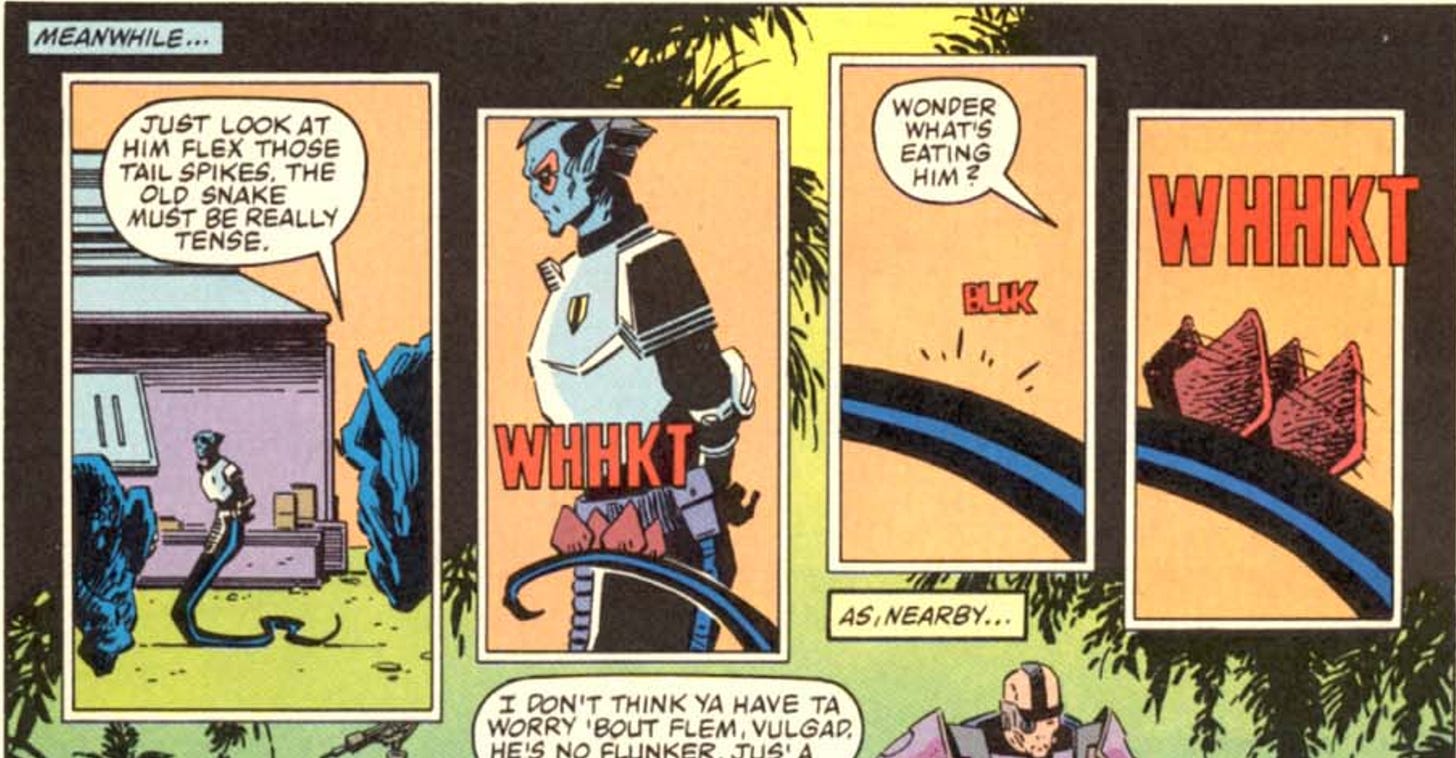
In the next issue’s back-up story, we start off replaying that same moment when Sarigar was preoccupied, but we see that he wasn’t contemplaing strategy and tactics, he was thinking about his sister.
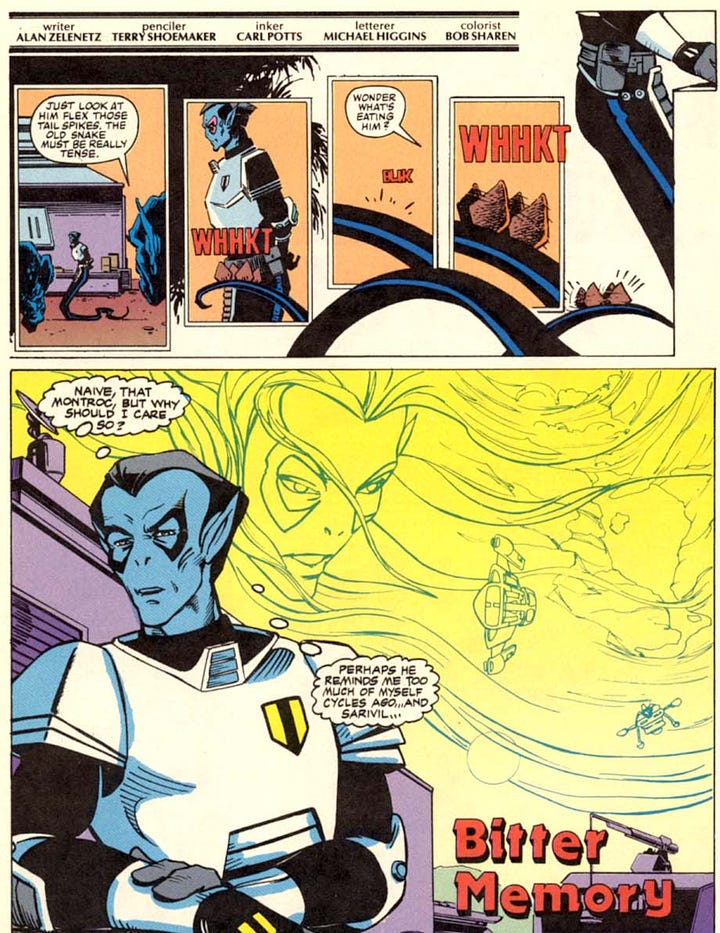
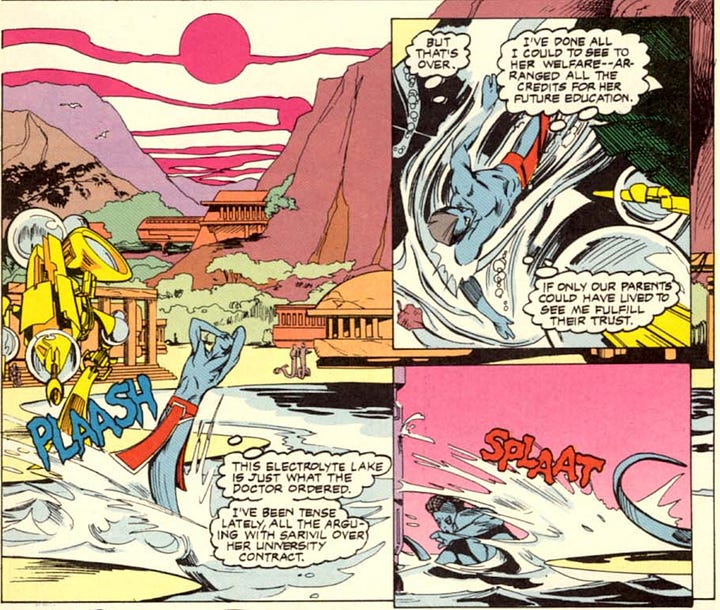
And then we flashback to Sarigar’s youth. His parents just died in an accident, leaving his and his younger sister as orphans. But the did both receive a sizable insurance payout/inheritance. Sarigar’s sister is a party girl, irresponsible as fuck as seeking validation from a bad boy.
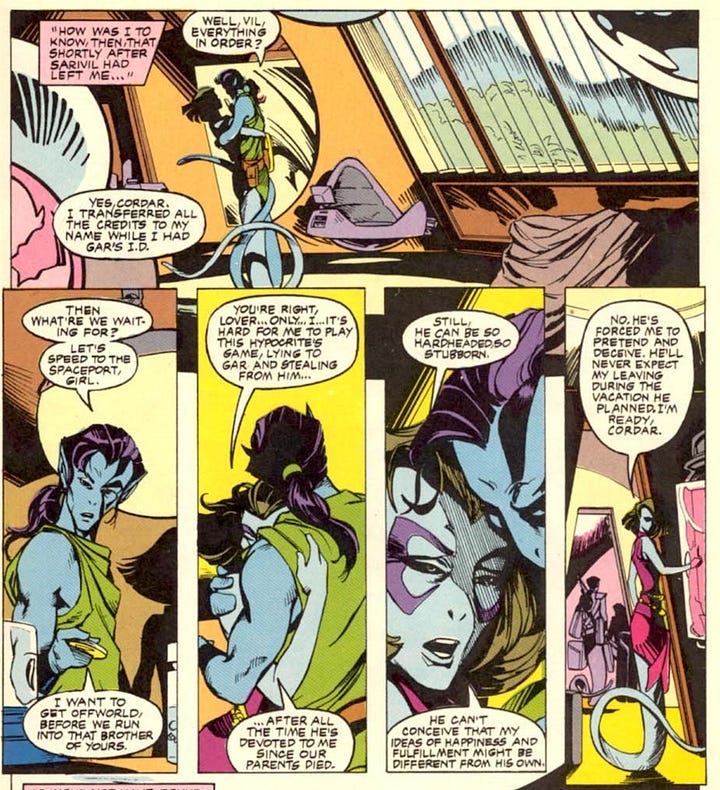
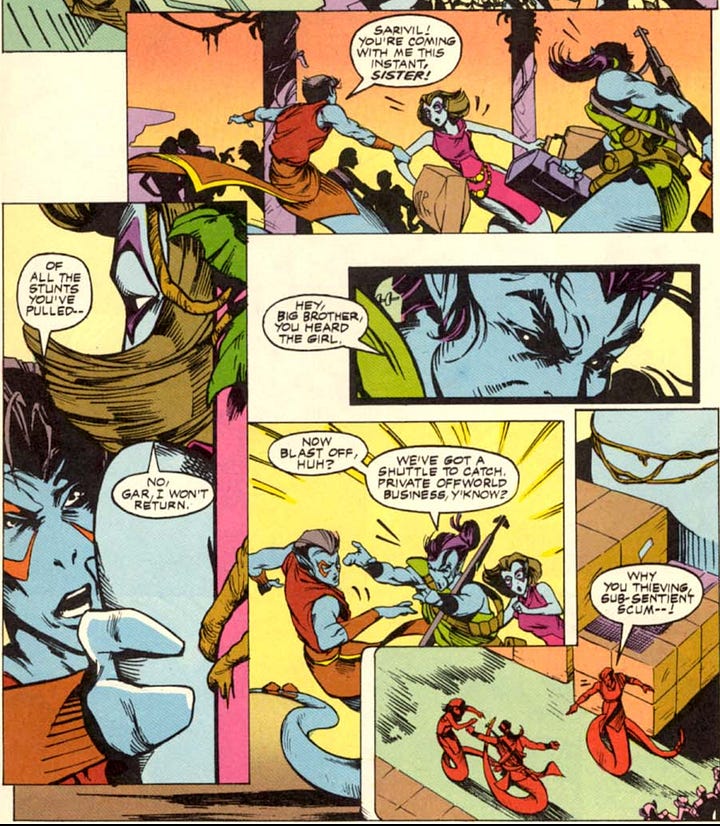
We learn that the boyfriend poured poison in Sarigar’s sister ear and convinced her to steal all of Sarigar’s inheritance, so the sister and the boyfriend can escape off-world and live the Life of Riley! Sarigar find out, confronts the two thieving lovebirds, but gets his ass kicked. The sister and her boyfriend rocket off planet with money, leaving Sarigar penniless; he has no choice by to join the legion. He never hears from her again.
You can see from these various examples that ALIEN LEGION presented stories and people with such depth and texture, and it wasn’t until my re-read that I understood how much I internalized the storytelling elements in, what is arguably, a dense, layered comic series. A series that rarely comes up in the discussion of “great comics” or even “great sci-fi”, yet it taught me a tremendous amount about people, narrative design, and how art can transmit ideas and emotions into your psyche that burrow deep and then filter through one’s subconscious then remixing with one’s lift experiences to shape the lens in which one sees the world and produces new work.
HOW’S THE WORK?
Still on the development track of the short film. We have our cinematographer, my old buddy Jake Pinger, who shot THE CHOP SHOP and the Heineken spec I co-directed two decades ago. I’m working the shot list, so I can load up the script in FrameForge and do the previz.
I’m arranging the table read for my next pilot, something a little different for me content-wise, but I love doing table readings that tell you so much about how the dialogue and story pacing are working.
I also dropped my first solor episode of Comics Rot Your Brain. I cover a DC Comic that came out of Warner Communications owning Atari in the early 90s. The series, “Atari Force”, is a fun space adventure with lots of characters, worlds, and subplots. My kind of storytelling!
There’s some writing I’m doing, but we’re at that time of year that where no one wants to assess a new creative project. So I’m re-tooling my comic (new inker and colorist) and working on a new short story.
CHEAP DOPAMINE
Edward Berger blew me away with his update to ALL QUIET ON THE WESTERN FRONT (2022). In the Streaming Age, it’s much harder to hear and see amazing international films. Advertising costs too much and ticket prices are too high for all but the most acclaimed work for across the globe to make it to the US theaters or get critical review. And whoever curates international films for Netflix, Amazon, and Hulu tend to stick with Hollywood palatable films (instead of the challenging work we used to see in the 90s and 2000s).
My mom urged me to see Berger’s latest film CONCLAVE, and was she spot on! Of course, she encourage me as a teen to see foreign films and accompanied me to see Rated R films when the “children under 17” stop sign was strictly enforced.
A huge chunk of CONCLAVE takes place inside The Sistine Chapel; a rather remarkable set (and I should I know, I was just walking through that hallowed space a year ago).


It’s rare to see this kind of chamber drama get made these days, because the Hollywood marketing people no doubt said when this project came across their inbox, “Who’s the audience for this? A movie about who becomes the next pope? Get out of town!”
Yet, it’s remarkably well crafted and has some excellent story twists. Ralph Fiennes leads a powerhouse cast that give smoldering performances, one and all. John Lithgow still kicks ass, no matter how many movies he’s in playing a certain type of role
The thing about Fiennes is, he still burns bright in my mind’s eye as the sadist charmer Amon Göth in SCHINDLER’S LIST. I bet I’m not the only person who can’t get that portrayal out of their mind 30 years later.
Sets, costumes, music (same composer from ALL QUIET ON THE WESTERN FRONT), script, and performances are top-notch, so go see this film already.
HERE’S MUD IN YOUR EYE
It’s not a matter of how well you can make a movie, it’s how well can you make it under the circumstances. Because there’s always circumstances.
And you cannot use that as an excuse. You can’t put a title card at the head of the movie, and say, “We have a really bad problem, the actor got sick, and it rained this day, and we had a hurricane, and the cameras broke down.”
You can’t do that.
You simply have to show ‘em the movie, and it’s gotta work,. And there are no excuses. So, you really have to focus on what your doing, and just plow ahead, no matter what the hurdles are thrown in front of you. — George Lucas
And that, my friends, it is for this issue!
Be seeing you!



